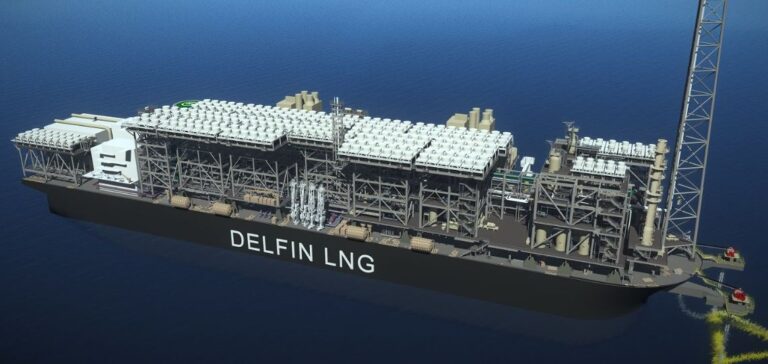The U.S. Department of Energy (DOE) has just granted a five-year extension to Delfin LNG to export liquefied natural gas (LNG) to countries without free trade agreements with the United States. This decision comes as the project, located off the coast of Louisiana, has experienced multiple delays since its inception, primarily due to global disruptions caused by the COVID-19 pandemic and a complex international trade environment. The official announcement was made at the international energy conference CERAWeek in Houston by U.S. Energy Secretary Chris Wright. This green light represents a decisive turning point for the Delfin LNG project, which ultimately plans to produce up to 13.3 million metric tonnes per annum through four distinct floating facilities.
Complex history of the Delfin LNG project
The Delfin LNG project was initiated in 2014 by Delfin Midstream with the goal of becoming one of the first floating infrastructures dedicated to LNG exports in the United States. In 2017, the project had already received significant initial approval from the Department of Energy, allowing exports to markets without free trade agreements with Washington. However, Delfin LNG encountered a series of setbacks, notably in 2019 when its initial partner, Golar LNG, withdrew from the project, citing difficulties in securing long-term purchase agreements.
The global health crisis in 2020 exacerbated these delays, prompting Delfin Midstream to repeatedly request extensions for its operational and export permits. At the same time, escalating trade tensions between China and the United States hindered efforts to finalize new supply contracts. Despite these challenges, Delfin LNG gradually strengthened its client base through strategic agreements with major players in the energy sector, including Vitol and Centrica, in 2022.
Strategic impact on global markets
This latest extension follows a temporary suspension of approvals enacted in 2024 by the previous administration, which aimed to assess the economic and environmental impacts of rapid U.S. LNG sector expansion. By approving this extension, the current administration confirms its support for continued LNG exports in a global context marked by high energy demand, particularly in Europe and Asia. This support translates into a more favorable policy stance toward energy projects initiated under the Trump administration, which had already facilitated three similar authorizations since 2017.
For Delfin LNG, this extension constitutes a critical step before making a Final Investment Decision (FID), initially scheduled for late 2023 but now anticipated within the coming months. Ultimately, the realization of this project could considerably strengthen the United States’ position in the global liquefied natural gas market, a sector in which the country already plays a significant role in global energy supply.






















